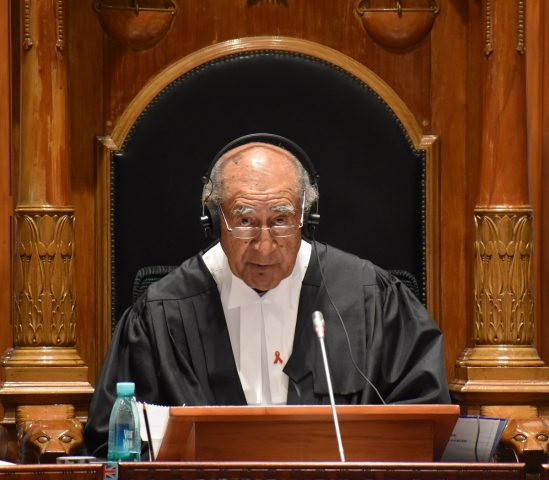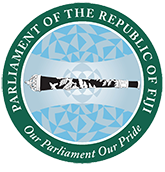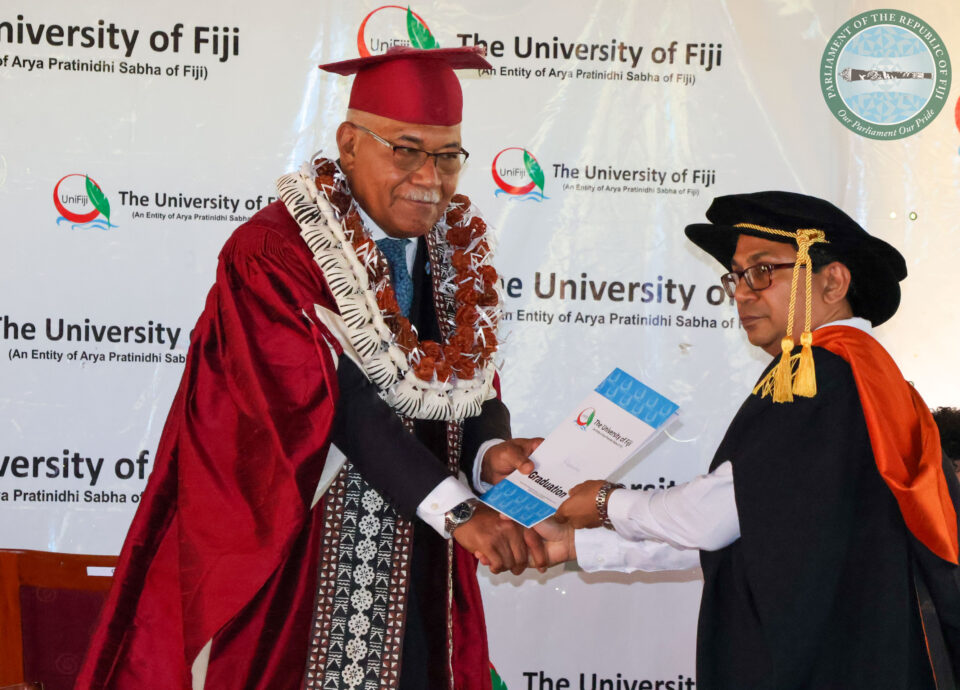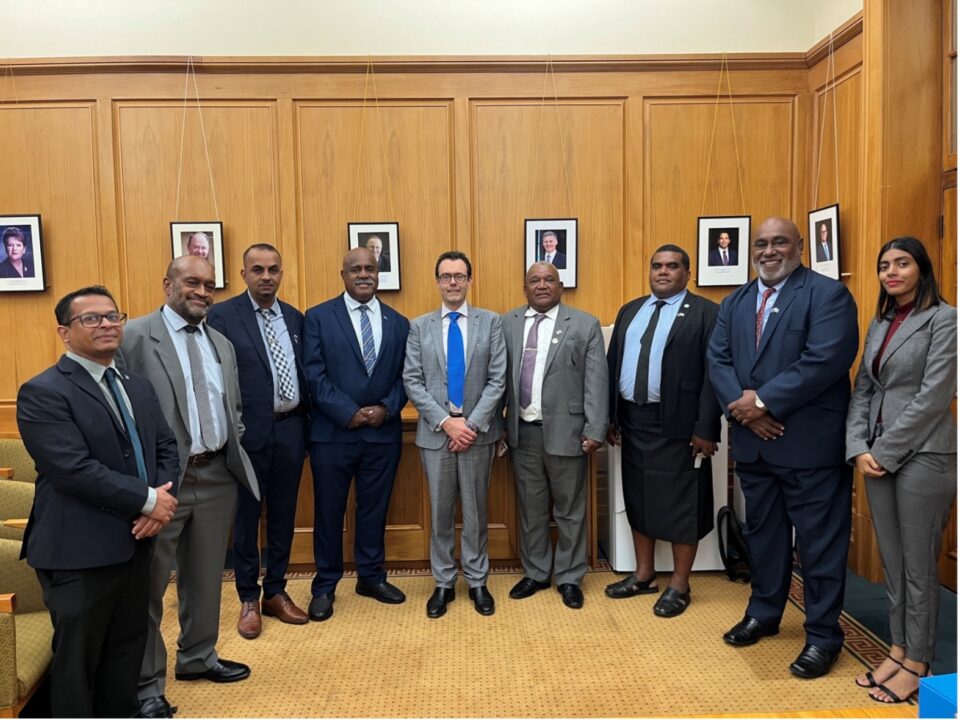International Day of Parliamentarism – Message by HE Hon. Ratu Epeli Nailatikau

The International Day of Parliamentarism is marked annual on the 30th of June. It is a day to celebrate Parliaments and acknowledge how the Parliamentary systems of Government are crucial to national development and progress. It is also a time during which Parliaments and Parliamentarians take stock of the challenges they face and ponder on the best ways to address these.
Whilst this year’s theme focuses on youth empowerment and participation, I wish to highlight some of the progressive initiatives that have been undertaken by the Fijian Parliament.
The role and status of Parliament in our society is evidently becoming more important than ever especially at this critical time where nations continue to grapple with the deadly COVID-19 pandemic. During disasters such as these the core Parliamentary functions of law-making, oversight and representation become more crucial than ever as citizens face the effects of a deadly disease, economic adversity, and uncertainty.
As we deal with the pandemic, we must also consider of the many other issues that confront us including the many challenges to Parliamentary democracy. Parliaments, as the cornerstone of functioning democracies need to be strengthened, more transparent, highly accountable, robustly representative, and resilient amid calamities like COVID-19.
The Fijian Parliament since its re-establishment on 6 October 2014 has strived to fulfil its constitutional mandate and contribute to the building of a better Fiji for all. The restoration of Parliament was a major milestone in Fiji’s desire to return to democracy. Since then, we have aspired to and worked hard to progress on: Parliamentary transparency, the pursuance of gender equality; enhancement of women and youth participation in Parliament; enhancing the capacity of the people’s representatives; active participation of the media; citizen education and dialogue and so forth.
The Parliament and Secretariat have prioritised goals such as: instituional strengthening and capacity-building for staff; developing the capacity and professionalism of Members of Parliament; developing an effective reporting system for Parliamentary proceedings; improving the visibility and profile of Parliament through a strong outreach and communications strategy and; maximising the use of new information communications technologies for the efficient and cost-effective delivery of services.
Many of these initiatives are bearing fruit today, such as an enhanced IT infrastructure and e-Parliament initiative which has allowed us to effortlessly adapt to the lockdowns and social distancing brought about by the pandemic. The Fijian Parliament has been able to continue its Parliamentary business amidst the second wave of the COVID-19 infections because of the timely investments in its e-Parliament initiative which started in 2018. We have also maintained public access to Parliamentary affairs through virtual Committee inquiries or hearings beginning in April 2020 and the expanded use of our social media platforms to livestream these activities. Despite the challenges associated with the COVID-19 lockdowns and curfews, the Fijian Parliament was able to have virtual hybrid sittings from 25 May to 7 June. This was a milestone in the history of the Fijian Parliament and Parliamentary democracy in Fiji. During these hybrid sittings, committee reports, and Bills were tabled, debated, and passed by acclamation and were televised live on free-to-air TV and live-streamed on the Parliament’s website and Facebook page.
The Fijian Parliament is one of the few Parliaments amongst developing island countries to fully engage with the United Nations 2030 Agenda for Sustainable Development (2030 Agenda) and its Sustainable Development Goals (SDGs) which aims to end poverty, build peaceful societies, and promote prosperity and people’s well-being while protecting the environment for current and future generations. We have recognised a key principle in the Declaration of the 2030 Agenda which acknowledges the ‘essential role of national Parliaments through their enactment of legislation and adoption of budgets, and their role in ensuring accountability for the effective implementation of our commitments’. This also acknowledges that Members of Parliament are uniquely positioned to act as an interface between the people and state institutions, and to promote and adopt people-centered policies and legislation to ensure that no one is left behind.
In actioning its commitment, the Fijian Parliament made history by being the first member of the Inter-Parliamentary Union (IPU) to carry out a self-assessment exercise on the SDGs in October 2017. In May 2019, the Fijian Parliament launched its SDGs guidance note for Committees, which is designed to assist the Standing Committees to integrate SDG evaluation in their legislative reviews and oversight work. Earlier in 2017, the Parliament published a toolkit that assists the Standing Committees to scrutinise legislation from a gender perspective. This was Parliament’s contribution to the advancement of SDG 5 – ‘Achieve gender equality and empower all women and girls’. The toolkit is part of Parliament’s gender mainstreaming initiative where Standing Committees must consider gender issues when reviewing legislation or undertaking oversight.
The gender mainstreaming initiative comes at a time when Fiji is experiencing an increase in the number of women Parliamentarians and an upward trend in the number of women in leadership positions. The Fijian Parliament continues to support women in Parliament through its commitment to the Commonwealth Parliamentary Association (CPA) Commonwealth Women Parliamentarians (CWP) network with the formation of the CWP Fiji Group involving our 11 women MPs.
The Fijian Parliament’s embracing of the 2030 Agenda and the SDGs also induces it to give due consideration to youth, people living with disabilities, and other vulnerable groups.
The empowerment and participation of youth are initiatives that the Fijian Parliament has always supported. We have had one Youth Parliament in 2014 and two in 2015 and these were aimed at giving young aspiring leaders a taste of Parliamentary work and national politics and also to encouraging them to aspire to be representatives and leaders in their communities.
Youths make up around half of the Fijian population and the youth vote has become the largest in our national elections. More than half of those enrolled to vote in 2018 were aged 40 and under, and about a quarter were aged 30 and under. Political parties also fielded young candidates in their effort to attract the youth vote. However, the overwhelming majority of elected Members of Parliament are aged 40 and above.
On this International Day of Parliamentarism, we all need to reflect on supporting young leaders and empowering youth participation in Parliament.
— ENDS —







